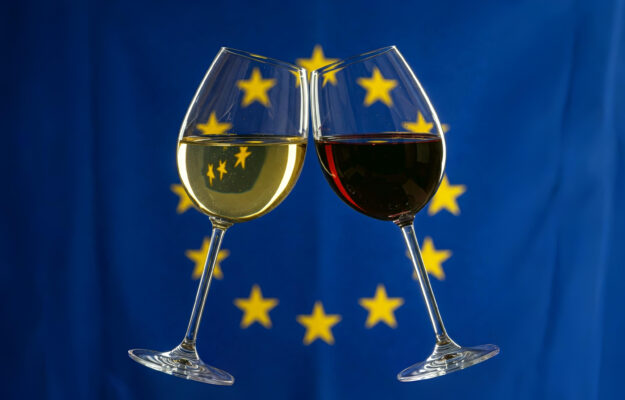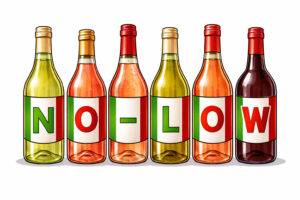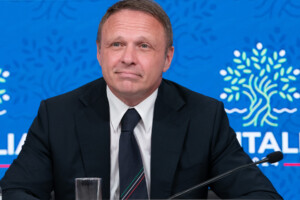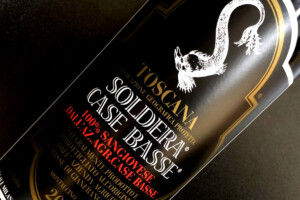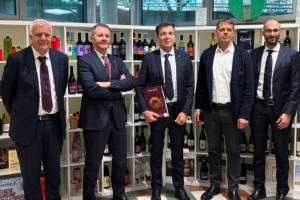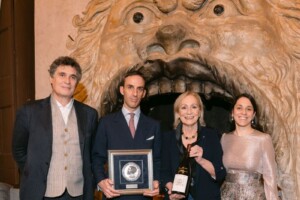Christophe Hansen, the European Commissioner for Agriculture, recently presented the “Wine Package”. The long awaited proposal was drawn up based on the ideas that came out of several meetings at the European level. The Italian wine organizations like it, and highly approve it. Federvini, the Italian wine industries federation, for instance, explained that the proposal “represents a concrete and timely response to the recommendations formulated by the High Level Group on the future of the European wine sector, last December. Furthermore, it is the first tangible sign of a change of direction announced a few weeks ago, together with Commissioner Fitto, in the programmatic document, “Vision for Agriculture and Food”, the production world has been waiting for”. “We appreciate the “Wine Package” not only for the speed with which the European Commission followed up on the requests of the sector, but above all, for the quality of the solutions indicated, Micaela Pallini, president of Federvini, declared, “we welcome the pragmatic and modern approach that it intends to adopt on labelling, as it will allow identifying the QR code through symbols or pictograms, to fully utilize the enormous potential that digital information offers to consumers. In addition to this, there are innovations for promoting wines in third Country markets, and greater resources for investments in climate change mitigation, which are elements going in the direction we have always hoped for”. Federvini continued, emphasizing “the importance of the new provisions on aromatized wine products at low or no alcohol content, which will give a new impetus to this important sector of the Italian industry. Introducing clearer and more coherent terminology - using the terms “zero alcohol”, “no alcohol” and “low alcohol content” - and the possibility of producing aromatized wines starting from dealcoholized and partially dealcoholized wines, constitute a fundamental awareness of the evolution in tastes and consumption habits, as well as a concrete opportunity for companies in the sector to innovate”.
“The Commission has listened to the sector and provided prompt responses”, Pallini continued, “in this moment, when there are new global challenges, from the impact of climate change to new consumption models emerging, the “Wine Package” offers more flexible management tools, supports investments oriented towards sustainability and renews the European commitment to support competitiveness of our producers and the communities that live in the wine-growing regions. Federvini will carefully follow the legislative process of the proposal, hoping that the definitive approval and full implementation of the measures will be achieved quickly, in the common interest of the entire wine-growing sector”.
Comments from the Italian wines union, Unione Italiana Vini - UIV were also positive. Paolo Castelletti, Secretary General of UIV explained, “the proposal responds to the need to develop specific and targeted regulatory interventions in our sector in this delicate moment for everyone, from geopolitical to economic-commercial as well as environmental and social”. “We appreciate how swiftly the proposal has been drawn up”, Castelletti continued, “as well as the effort to include many of the High Level Group’s recommendations for the future of wine in the EU. We are well aware of the dramatic effects that tariffs imposed by the USA would have on the entire European sector, and therefore, we believe that this proposal is an excellent starting point today. We are at the disposal of the Ministry of Agriculture and the European Parliament to give the supply chain’s contribution to improving the text in view of the discussion and approval of the regulation”.
According to UIV, postponing National aid to finance production containment measures, and avoiding using CMO funds for interventions to destroy the product, such as distillation and uprooting, are among the positive elements in the proposal. “The text of the Commission also emphasizes that reducing yields opens up the possibility to extend the time allowed for replanting authorizations, which is a more flexible and zero-cost tool. Simplification regarding dealcoholized products, and proposals to intervene on regulating production as well as names and types, but also digitalization of information for consumers have also been favorably received accepted. Finally, the Commission's indications take into account the requests of Unione Italiana Vini to simplify the promotion measure aimed at allowing actions to consolidate and strengthen the markets”.
“The proposals the Commissioner has put forward are based on a strategic and far-sighted vision for the European wine sector. There is also a specific reference to rationalizing replanting rights, flexibility in authorizations and opening to new categories of products, such as dealcoholized and partially dealcoholized wines”, Luca Rigotti, president of the wine sector of Fedagripesca Confcooperative, added. “Specifically, extending replanting rights from 3 to 8 years, together with suspending penalties, is a measure that will allow producers to adapt to climate and market changes with greater flexibility, planning crops on a longer time horizon, without fearing sanctions. The choice to maintain the three-year constraint for new plants, with sanctions, demonstrates a balanced approach, avoiding the risk of overproduction, and guaranteeing that the companies will be able to gradually renew themselves”, Rigotti commented.
According to Confcooperative, “another strong point” is the greater autonomy granted to member States to issue authorizations for replanting and new vineyards, since “decentralizing such decisions allows us to adapt production policies to specific climatic, economic and territorial characteristics of each country, enhancing local excellence while not compromising community objectives”. Removing unused authorizations by 2026, and no penalties, also frees up inactive resources, rewarding those who invest concretely and discouraging speculation. Furthermore”, the Cooperatives continued, “revising the rules for dealcoholized and partially dealcoholized wines, including sparkling and aromatized wines, is a sign of modernity and attention to market trends. The introduction of clear terminology, such as “Alcohol-free wine” and “Low-alcohol wine” eliminates ambiguity, guaranteeing transparency to consumers and facilitating exports. This standardization, combined to production flexibility, opens the doors to a rapidly growing market”.
“Europe, home to age-old winemaking traditions, has thus demonstrated its ability to reconcile heritage and innovation”, Rigotti added, “positioning itself as a leader in this upcoming segment as well. The possibility to produce dealcoholized sparkling wines and aromatized wines broadens the range of offerings, attracts new consumers and diversifies wineries’ offerings. Finally, harmonizing electronic labels through a unified QR code and the use of pictograms, according to Rigotti appears to be “a visionary choice”. Reducing bureaucratic formalities for producers, and avoiding the risk of rejections at intra-EU borders, simplifies trade and lowers costs, especially benefiting SMEs, which often struggle to sustain multiple administrative burdens. In closing”, the president of the wine sector of Confcooperative commented, “the package of measures that has been presented, on one hand strengthens the rights of companies and streamlines procedures, acknowledging the necessity to adapt to structural and climatic crises, while on the other, it demonstrates the desire to embrace innovation and new markets, without betraying the identity of the sector. It is a very good balance between protecting tradition, and impetus towards the future, which deserves broad support. Finally, we hope that the EU Council and Parliament will proceed quickly and efficiently towards a rapid approval, introducing adequate financial flexibility, which is necessary for the sector today”.
Copyright © 2000/2026
Contatti: info@winenews.it
Seguici anche su Twitter: @WineNewsIt
Seguici anche su Facebook: @winenewsit
Questo articolo è tratto dall'archivio di WineNews - Tutti i diritti riservati - Copyright © 2000/2026










